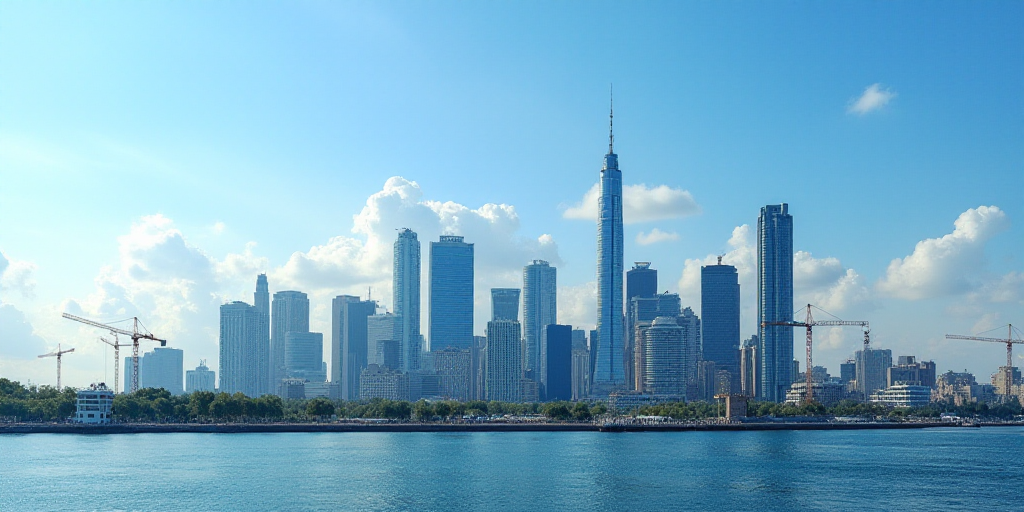Introduction and Purpose of the Visit
I had the opportunity to visit Israel as a guest of the country’s embassy in Mexico, along with a group of journalists. The visit coincided with a significant milestone: 600 days since the attack by Hamas on October 7, 2023, which resulted in the deaths of 1,200 people. According to Yoed Magan, a representative from the Israeli Ministry of Foreign Affairs, the purpose of our visit was for journalists to witness firsthand what is happening amidst a global climate of misinformation surrounding the conflict in the Gaza Strip.
Israel’s Vision and Challenges
During our conversations, Israeli authorities expressed a conviction: Gaza could have become the Singapore of the Middle East, with development, infrastructure, and opportunities. However, under Hamas’ leadership, it opted to build tunnels, arsenals, and hate.
“Israel has lost the media war,” they acknowledged with frustration. Henrique Cymermann, an Israeli-Portuguese journalist, recalled that after the Six-Day War, Israel won on seven military fronts simultaneously but lost the eighth: international public opinion. Today, more than ever, the narrative defeat is perceived clearly due to the proliferation of false news.
However, there is another Israel. A resilient country that, after economic sanctions and diplomatic isolation, decided to rely on itself and make innovation its path to survival and leadership. Israel is more than just a conflict; it’s a power in technology, water, and health. It has turned its innovation ecosystem into a key diplomatic tool.
Technological Diplomacy: Key Visits and Insights
Our tour included visits to critical points of this technological diplomacy strategy. One was Sorek, one of the world’s largest desalination plants, converting seawater into potable water with great efficiency. We also visited Shafdan, a wastewater treatment plant. Israel recycles 90% of its water for agricultural use, a world record. In a country where 60% of the territory is desert, water is strategic. To survive in Israel means to innovate.
At Ben-Gurion University of the Negev, Professor Noam Weisbrod, director of the Jacob Blaustein Institute for Desert Research, succinctly summarized Israel’s vision: “Countries that invest in education, science, and technology are those that will have a better future.” The university works on sustainable agriculture systems in arid regions, biotechnology, and AI for natural resource management.
Sheba Global Hospital (ranked among the top 10 in the world) demonstrated how medicine and innovation can advance together. From telemedicine to rehabilitation robots, the center combines clinical research with direct applications that are saving lives, both within Israel and abroad.
At the Peres Center for Peace and Innovation, facing the Mediterranean in Tel Aviv, diplomacy can be channeled through startups, researchers, and inventors. Israel believes it can contribute to the world with solutions in cybersecurity, agriculture, education, and health. It is betting on it.
Inspiring Moments and Future Aspirations
One of the most inspiring moments was dinner with Mois Navon, co-founder of Mobileye (acquired by Intel), the company behind autonomous driving, road safety, and assistance technology used by brands like BMW and Audi. Mois spoke about his pioneering role in the technology industry; he now advises the Ministry of Innovation, Science, and Technology on AI policies.
Udi Avivi, representative for Economic Relations with Latin America and the Caribbean, summarized Israel’s challenges: “Israel was a Startup Nation. Now we want to be a Scale-Up Nation.”
This paradigm shift implies new challenges: more tax incentives, more STEM-trained engineers, and integrating AI into government. Currently, the high-tech sector represents 12% of employment in Israel, contributes 25% to GDP, invests 5% of GDP in R&D, and generates 54% of its exports. According to the Global Innovation Index, Israel is the seventh most innovative country and the second most reliable for venture capital funds (after the U.S.).
Since 1948, Israel has established itself as a free, open, and export-oriented economy with an entrepreneurial culture. The high training of its human capital is the result of equitable education: the poorest and wealthiest child receive the same teaching. In this country, many technological innovations are initially developed for and by the army but later adapted for civilian use. Examples abound: USB memory, WhatsApp’s precursor, Waze’s geolocation technology, and cybersecurity developments now considered global standards.
Being the only non-Islamic nation in a region of 52 Muslim-majority countries, constantly tense, has forced Israel to adopt a survival strategy based on knowledge, security, and technology. Innovation is not a luxury but a necessity. “We must rely only on ourselves,” they explained. This mindset has turned Israel into a relevant actor in the region and a technological power.
Key Questions and Answers
- What is the purpose of this visit to Israel? The aim was for journalists to witness firsthand the situation in Israel amidst global misinformation surrounding the conflict in Gaza.
- How does Israel leverage its strengths in technology, water, and health for diplomacy? Israel has turned its innovation ecosystem into a key diplomatic tool by showcasing successful results in water management, public health, and emerging technologies.
- What are some examples of Israel’s technological innovations? Examples include the USB flash drive, WhatsApp’s precursor, Waze’s geolocation technology, and cybersecurity developments now considered global standards.
- What challenges does Israel face in its pursuit of becoming a Scale-Up Nation? Challenges include providing more tax incentives, training more STEM-skilled engineers, and integrating AI into government operations.
- How does Israel’s unique geopolitical situation influence its focus on innovation? Being surrounded by hostile territories has made innovation a necessity for Israel’s survival, leading to a strong emphasis on knowledge, security, and technology.






